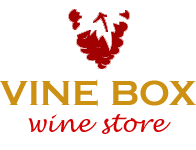






IGP Coteaux de Peyriac was a Vin de Pays de Zone until 2009 within the Aude department in the southern Languedoc-Roussillon wine region of France. It is named after the small town of Peyriac-Minervois, which lies at its center. The new IGP (Indication Geographique Protegee) covers an area which is roughly the same as that of the Minervois appellation. At the eastern edge of this is La Livinière, the village which gives its name to the sub-appellation Minervois La Livinière, where most of Chateau Maris’ wines are made. The landscape here – just east of the historic fortress town of Carcassonne – is a virtually uninterrupted carpet of vines, lying at the southern foot of the Montagne Noire Mountains.
Carignan (also known as Mazuelo, Bovale Grande, Cariñena and Carignane) is a red Spanish/French wine grape variety that is widely planted throughout the western Mediterranean. Ampelographers believe that the grape likely originated in Cariñena, Aragon and was later transplanted to Sardinia, elsewhere in Italy, France, Algeria, and much of the New World. After the phylloxera epidemic devastated French vineyards in the mid to late 19th century, plantings of Carignan grew in popularity on the French mainland. Plantings increased even more when Algeria gained independence in 1962. The grape’s prominence in France hit a high point in 1988 when it accounted for 167,000 hectares (410,000 acres) and was France’s most widely planted grape variety.
As fresh and juicy as we could possibly make it, Le Carignan de Maris is made in an environment that encourages bio-diversity and sustainability. It’s handpicked, fermented with natural yeasts in large concrete tanks in our Hemp winery. Our Carignan is a lighter style red wine (bordering on chillable), packed with fresh cherry flavors. It is old vine Carignan, certified Organic by Ecocert AB, blended with 20% Certified Demeter Biodynamic Grenache. It is bottled in super light (395 g.), recycled glass bottle and labeled using only recycled paper. Please open before drinking.
In 2013 Chateau Maris was singled out by the Wine Spectator as one of the very top wineries confronting climate change head-on: “In Languedoc-Roussillon in southern France, Robert Eden of Château Maris has taken green winery construction to a new level, building an entire facility out of lightweight, organic hemp-straw bricks that continue to capture and sequester carbon dioxide over many years as they harden. The winery, which opened in the fall of 2012, is aiming for LEED Platinum, the highest level of certification. Maris farms biodynamically and produces very good to outstanding red varietals and blends from Syrah, Grenache and Carignan.”